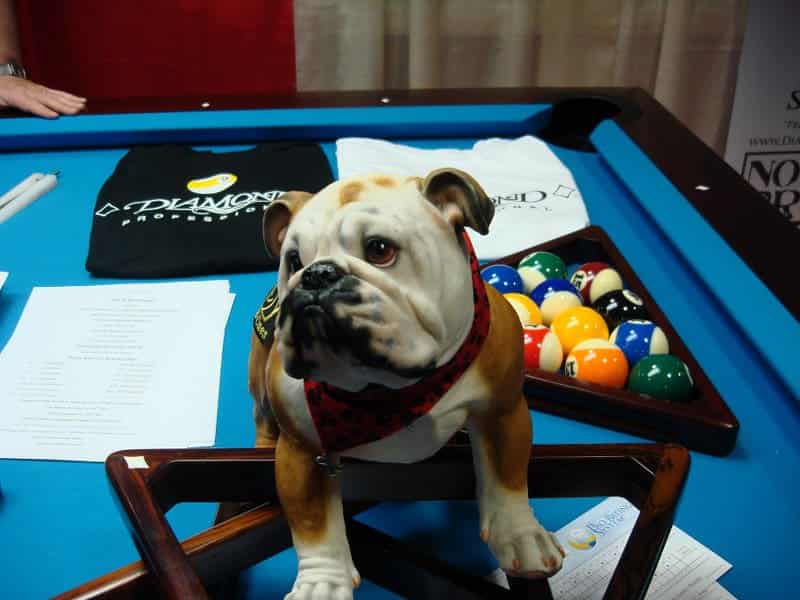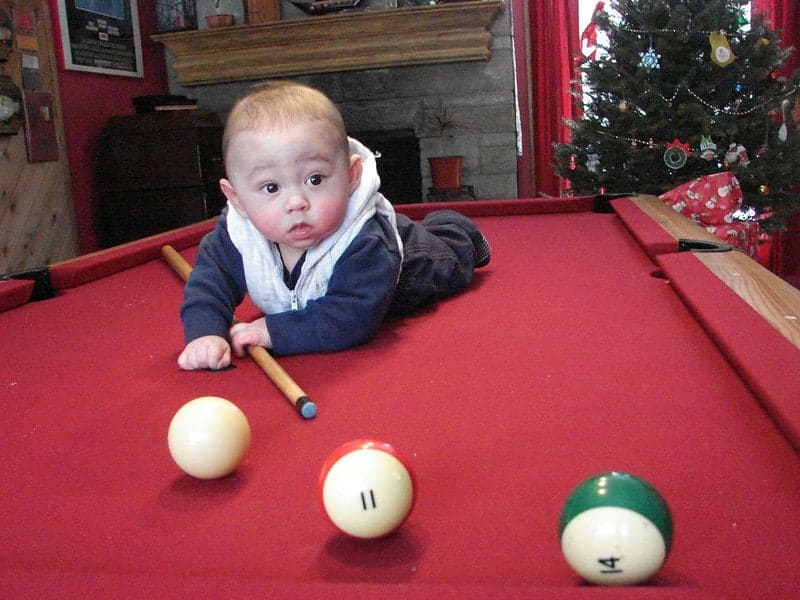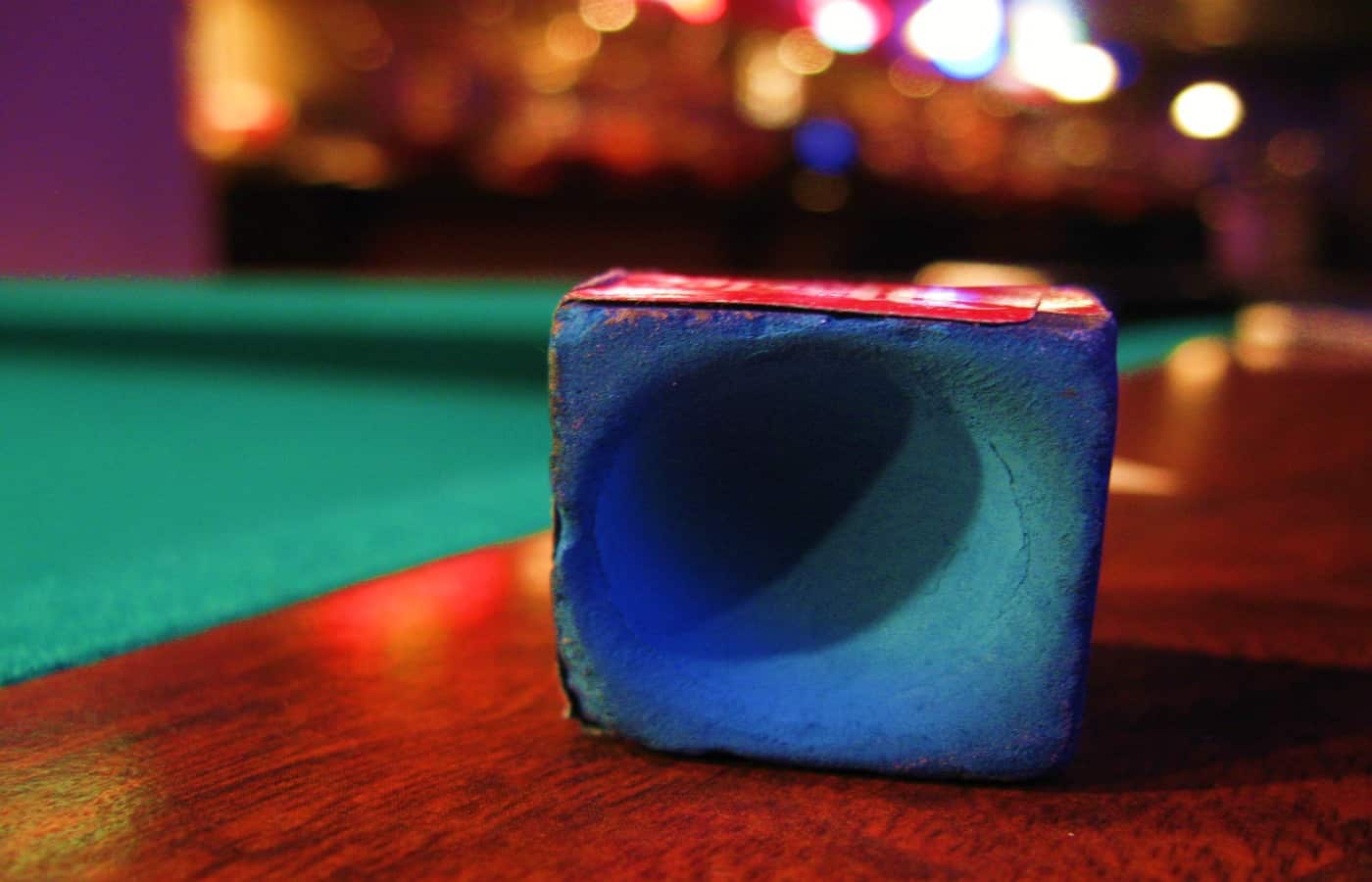Pool chalk, used generously in the popular game of pool, is an important part of the sport. Because the tip of the cue stick can become smooth over time and therefore make shots less accurate, pool chalk allows the player to build friction on the cue and ensure a good shot.
However, due to the fact that pool chalk often comes in small pieces, it is often at risk of being consumed by pets or small children. As such, many people wonder if pool chalk is toxic.
The short answer is no, pool chalk is not explicitly toxic, but accidental consumption of pool chalk by pets or babies should be treated seriously as the chalk may contain trace amounts of lead
What Is Pool Chalk Made Out Of?
The product known as pool chalk differs significantly from the type of chalk that is used on blackboards or sidewalks. Sidewalk chalk is typically made from calcium carbonate, which is non-toxic and considered reasonably safe for use by children. On the other hand, pool chalk is often not made from the same ingredients, so knowing the difference is important to ensuring the safety of your pets and children.
Pool chalk is typically composed of three different ingredients: aluminum oxide, crushed silica, and corundum. High quality pool chalk, like that which is used in large professional tournaments, can be quite expensive, but there are many affordable options for less serious players. Furthermore, pool chalk is almost always the color blue, as this has become the regulatory norm in professional billiards.
Is Pool Chalk Toxic to Dogs?

Most pet owners know how common it is for dogs to eat pretty much anything that comes in their path. This reality is often taken into account when making the decision to adopt or purchase a pet dog, and many pet owners wishing to have a pool table in their house might be wondering if their dog will be in danger if they accidentally consume a bit of pool chalk.
Luckily, pool chalk is not considered toxic to dogs. If your dog eats pool chalk, they are not in severe danger, but there are some things that you should be aware of and pay careful attention to. The best case scenario is that your dog will pass the pool chalk without trouble and you will find it in your pet’s stool shortly.
However, is it also possible that the pool chalk can cause a blockage in your dog’s gastrointestinal system. This is common with many small items that can be nibbled on and swallowed by your pet. Symptoms of a stomach issue include vomiting and diarrhea, which will be unpleasant for your pet, but might pass swiftly as their body works to pass the chalk.
In some cases, particularly with small or elderly dogs, consuming pool chalk can have more serious effects. For example, if your dog starts to lose their appetite or if there is blood in their stool, you will definitely want to call your veterinarian and ask for their advice or schedule a checkup as soon as possible.
Is Pool Chalk Toxic to Babies?

Babies discover and learn about the world often by putting things in their mouths. Even the most attentive of parents can look away for the smallest of seconds and turn back to find that their baby or toddler has somehow managed to get a foreign object near their little mouth.
Pool chalk is not considered severely toxic to children, especially when it is consumed in very small amounts. However, consumption of pool chalk should not be taken lightly, as some brands of pool chalk have been found to contain trace amounts of lead. Chances are that, should your child consume pool chalk, they will be fine, but it is a good idea to contact Poison Control for further advice.
The best first response to your children consuming pool chalk is to wipe their mouth out with a damp wash cloth and ask them to drink water to help their body flush out the substance naturally. More often than not your child will likely only experience mild stomach discomfort, but consulting your doctor when your child consumes any non-food object is always highly recommended.
Final Thoughts
Pool chalk differs from blackboard chalk and sidewalk chalk. The main difference between pool chalk, and the others, is that sometimes it can contain trace amounts of lead. This difference really boils down to the manufacturer and quality of the pool chalk in question.
When purchasing pool chalk, always be sure to read all the ingredients as well as doing research to see if your specific brand may contain lead or other poisonous ingredients.
If your baby or pet has ingested pool chalk, it’s always best to consult with a vet or a medical professional for further evaluation.

